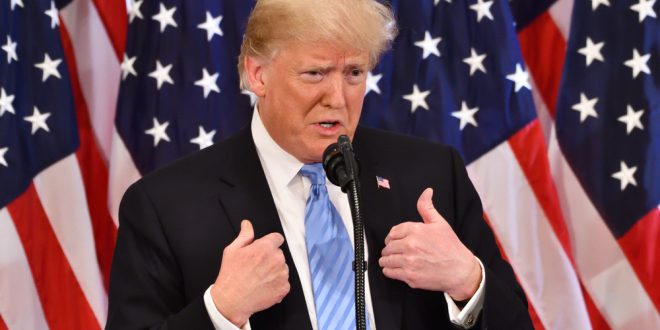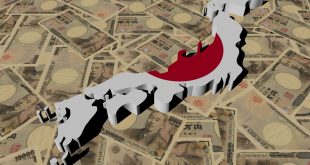Donald Trump, the Republican presidential contender and former US president, has emerged as a new influential force in the financial markets in the recent past, and his chances of winning the US presidential election in 2024 are being closely watched.
These prospects have grown recently due to certain developments that have taken place in American politics. The most prominent of these was the attempt on the life of the former president Trump, which happened when he was speaking to a crowd at an electoral conference in Pennsylvania. The result was a slight ear injury, one person’s death, and two other people’s injuries.
The announcement by US President Joe Biden’s support for his VP, Kamala Harris, as the Democratic Party’s presidential candidate, and his withdrawal from the primary race, which some analysts believe is in favour of the Republican Party candidate, added another factor to the mix.
The two most important topics that American voters are concerned about these days are immigration and the economy. Even before the US presidential elections were held, the markets started to consider the possibility that the policies that control the economy and financial markets might alter significantly if the Republicans took over as the party in power.
The announcement of US President Joe Biden’s support for his deputy, Kamala Harris, as the Democratic Party’s presidential candidate, and his withdrawal from the primary race, which some analysts believe is in favor of the Republican Party candidate, added another factor to the mix. Fearing a further escalation of street violence, the assassination attempt also made the presidential candidates less aggressive in their remarks. The former president’s first electoral victory stemming from the assassination attempt was the Republican Party nomination. Then, considering that Trump is the most likely candidate to win the presidency and the choice of most voters, his popularity among Americans increased even further after Biden’s exit.
Economic Policies
Trump used to refer to himself as the “Tariff Man,” implying that he was the one who placed high tariffs on products and items that the US imported, particularly from China. In fact, Trump levied high customs duties on Chinese imports into the US during his administration.
But the Republican candidate’s rise to power again may include more trade restrictions imposed on trade between the two economies’ global footprint, which is worth about $758 billion annually.
According to the former president’s 2025 trade agenda – if he assumes the presidency of the United States – he is expected to impose more tariffs on American imports from China. It is also expected to impose restrictions on Chinese ownership—at the individual and corporate levels – of a variety of US assets or within the United States.
Trump may place restrictions on Americans’ investments in China, in addition to the possibility of imposing a ban on the import of Chinese-made goods and merchandise into the United States, such as electronics.
It is noteworthy that the Biden administration did not cancel any of the tariffs imposed by the Trump administration on American imports. The White House is also currently considering – before the presidential elections – placing further restrictions on the access of electronic chips to China.
In general, Trump’s economic policies aim to reduce the integration of the US economy with the rest of the world’s economies, eliminate the trade deficit, and expand manufacturing, which will certainly have a significant impact on prices, jobs, US diplomatic relations, and the global trading system as well.
These policies may lead to the loss of many of the positives that the US economy has achieved in the past period, as they may have a negative impact on the improvement that appeared in the form of a decline in the US unemployment rate to 3.7%, a continued decline in the inflation rate, and the US economy adding about 200,000 jobs. Monthly, according to experts and analysts.
Trump, Friend of the Markets
Despite the risks that experts warn that the American economy may face due to Trump’s economic and trade policies, there are those who promote that these policies will revive the economy through the revenues they will generate for the state from customs tariffs and other fees and protectionist restrictions.
Supporters of these policies also believe that they will provide many jobs for Americans in the industrial facilities that are supposed to open in the United States after the restrictions begin to affect American companies and force them to move their factories from abroad to inside America.
They also believe that Trump’s policies may greatly help to maximize the manufacturing capabilities of the United States by reducing the tendency of American investors to China and other countries and starting to invest within the country.
These policies also include extending the tax exemptions granted to companies and individuals (corporate taxes and income tax), which expire next year, which, despite the positive implications for economic activity, may reflect negatively on the financial situation in the form of a deficit.
There is a strong positive correlation, which dates back to the Standard & Poor’s 500 index, between the likelihood that Trump will win the US presidency and the recent developments in the political scene, including the horrifying accident the former president experienced during the Pennsylvania electoral conference. In preparation for the US elections of 2024, many market analysts and poll analysts claim that it has been strengthening since last March. Prior to last March, there was a high correlation between markets and Biden’s likelihood of winning the election.

 Noor Trends News, Technical Analysis, Educational Tools and Recommendations
Noor Trends News, Technical Analysis, Educational Tools and Recommendations




